All timescales on the agenda
2025-10-08
I attended and contributed to a global Symposium on Information, Data, and Knowledge Management for Radioactive Waste, organised by the Nuclear Energy Agency (NEA) for the OECD in Yokohama, Japan (7-10 October 2025). Over 100 participants attended from Japan and around the world.
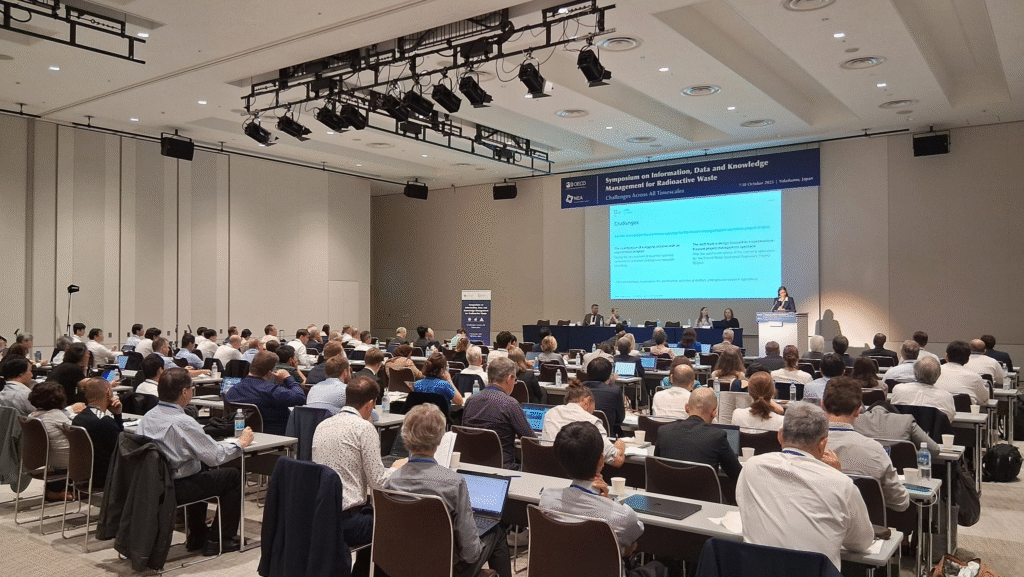
From the conference blurb (shortened): radioactive waste is produced in all phases of the nuclear fuel cycle and from the use of radioactive materials in industrial, medical, defence and research applications. After creation and use, many countries have a policy of interim storage, followed by permanent disposal underground in engineered repositories located in suitable geological formations. Significant quantities of data and information are generated throughout this lifecycle with many countries now exploring the concept of a digital safety case. The operational period of nuclear generation facilities often covers several decades, while disposal facilities are designed to operate for even longer. This raises significant challenges as these timeframes span multiple generations of workers and are likely to see many changes in policy and technology. Moreover, even after disposal, there is now a consensus on the importance of adopting strategies to preserve awareness of waste and disposal facility for long periods of time. The NEA Working Party on Information, Data and Knowledge Management (WP-IDKM) [to which Anders Högberg and Cornelius Holtorf belong] aims to co-ordinate these activities in a more holistic way, considering cross-disciplinary approaches and cognizant of all timescales of the information cycle.
The conference addressed “Challenges Across All Timescales”, from imminent expert retirement to one million years and more in the future. This is about Heritage Futures for real!
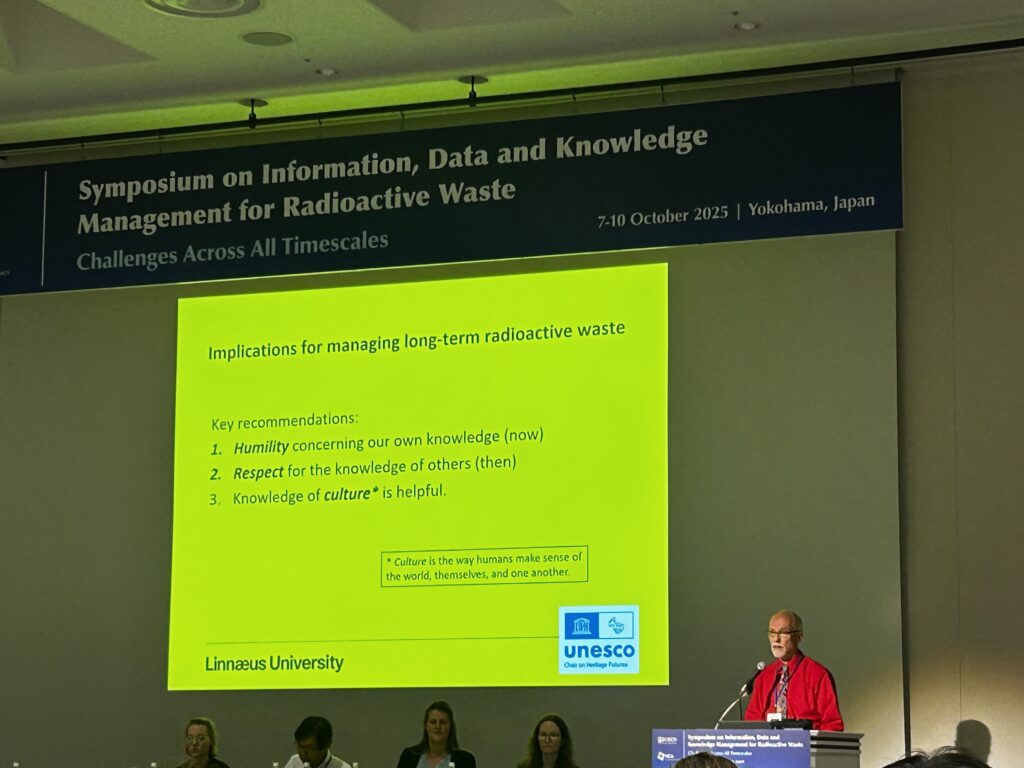
I presented the following paper:
Heritage Futures: Archaeological Insights for the Long-term Management of Radioactive Waste
Managing radioactive waste is a challenge that extends across many generations, requiring long-term safety measures. Archaeologists, like myself, are familiar with time scales of thousands of years as we seek to understand the distant past. A key part of our work involves questioning assumptions rooted in the present and learning to imagine past worlds that were vastly different from today. This is very difficult, but only after doing so can we draw meaningful insights from the past to inform the present. The same principles should apply when communicating information, knowledge, and guidance about radioactive waste repositories to societies of distant futures. This calls for a strengthened capacity in futures literacy,’ a concept developed and promoted by UNESCO. Futures literacy consists of three core dimensions: 1. Becoming aware of the assumptions we hold about the future, 2. Learning to imagine multiple alternative futures, and 3. Reframing the original issue and developing new strategies to address it. In this paper, I explore this argument and discuss its implications for a long-term, safe and responsible management of radioactive waste. The paper is based on extensive research conducted by the UNESCO Chair on Heritage Futures at Linnaeus University in Kalmar, Sweden. The research has been carried out in collaboration with the radioactive waste sector in Sweden and internationally, including through participation in several expert groups of the NEA.

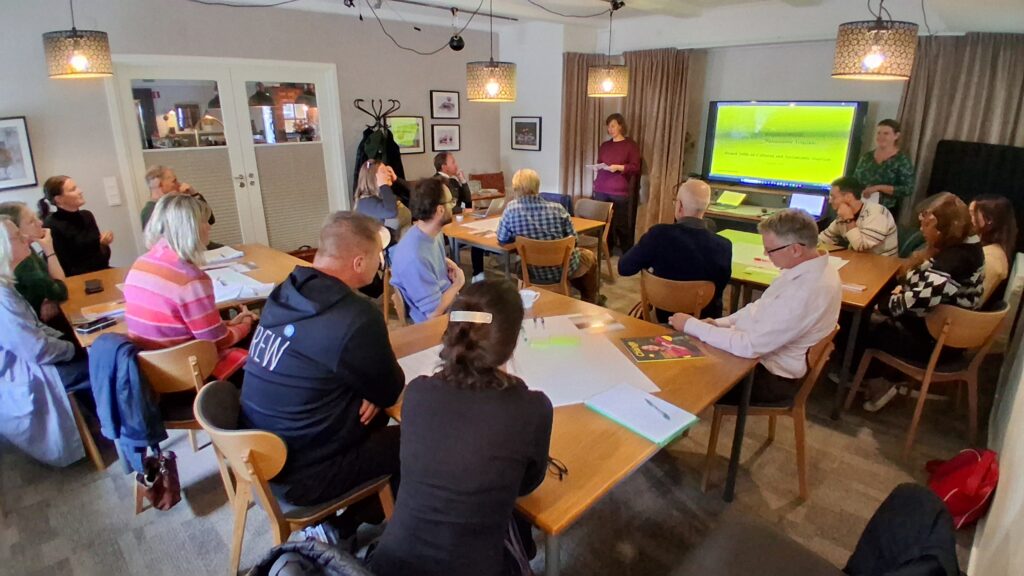
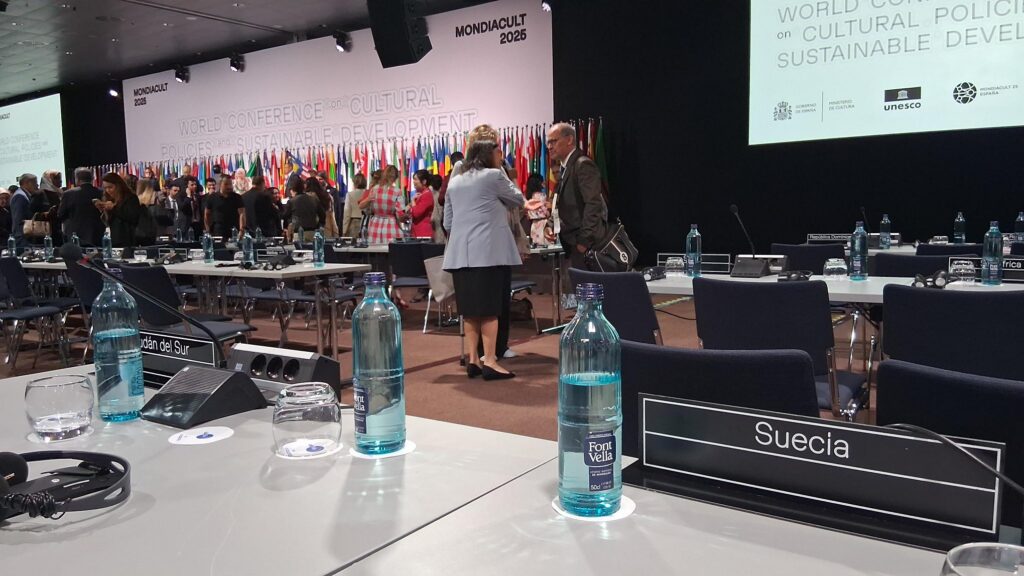
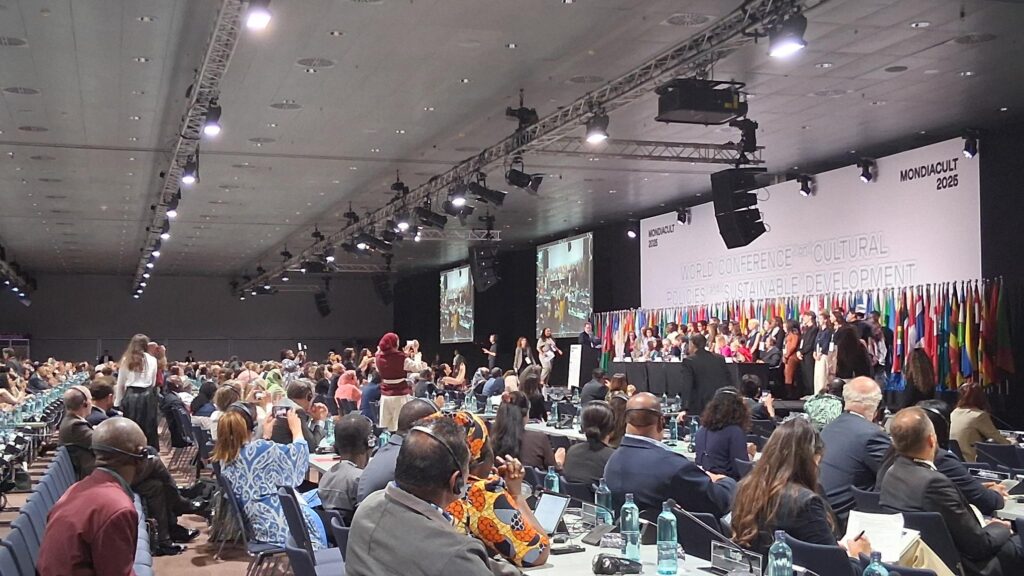




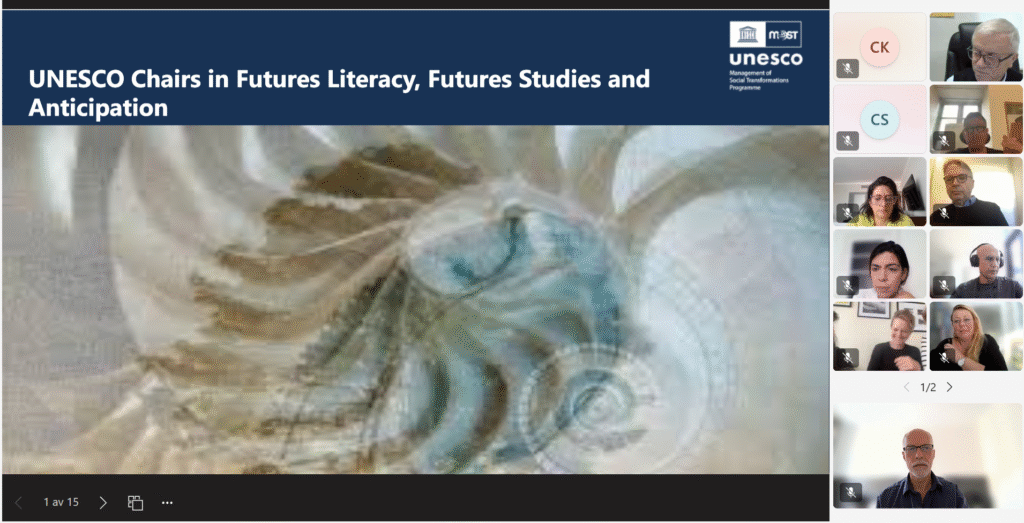
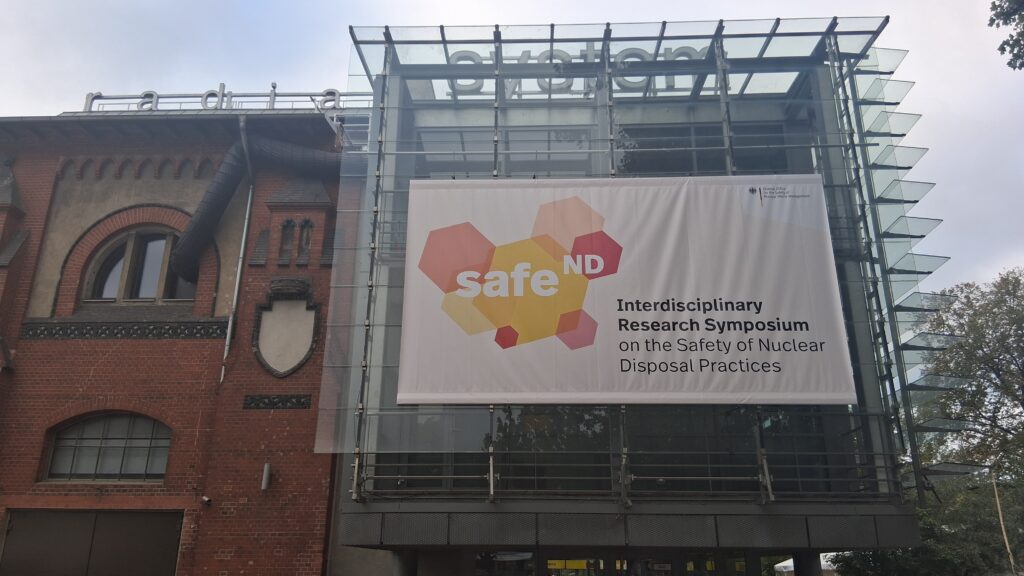
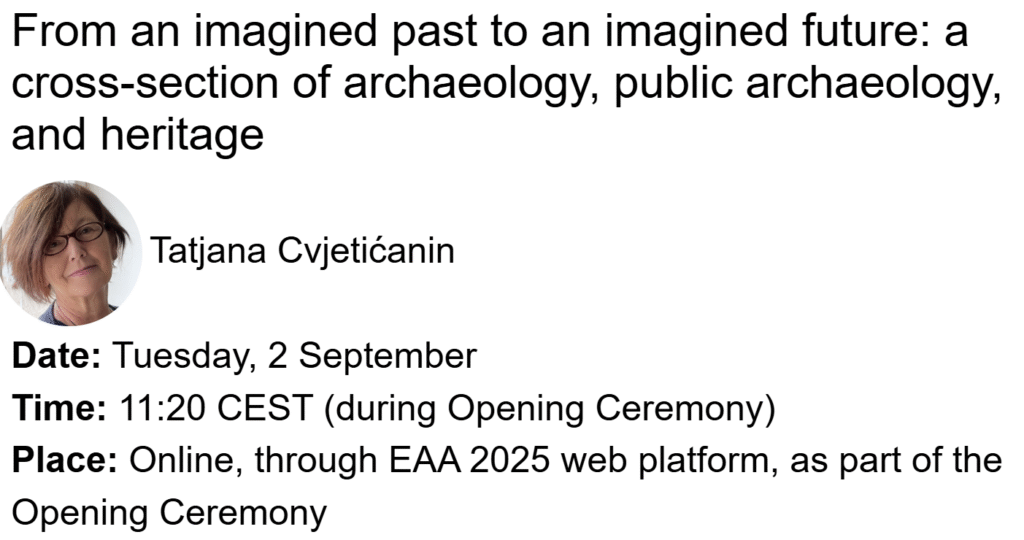
[…] The new funding for this and a number of additional smaller projects, means that the Climate Heritage Network is…
[…] Chair on Heritage Futures « Culture, cultural heritage and COP26 […]
[…] mer på Unescoprofessurens blogg http://blogg.lnu.se/unesco/?p=1061 Besök Öland 2050! […]